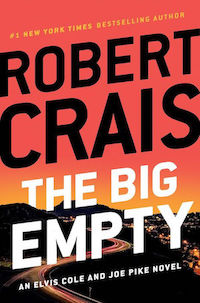Please note: This originally went live on my Patreon page on Sunday night, February 9, 2025. If you want to see most of my business posts these days, you’ll find them on Patreon. I’m only going to post a handful here.
Doing The Work Amid The Noise
There are times in life when being a writer is hard. I don’t mean real-world hard. Real-world hard is when your job is so important that one small error means someone else dies. There are a lot of real-world hard jobs in the world, and they keep the rest of us safe and alive.
As I said in a post a few weeks back, entertainment is important as well. We have an obligation to help those who are doing real-world hard jobs by giving them some kind of respite at the end of their long days.
But that means we have to do the work, and the work comes out of our brains. When we’re panicked and distracted—checking the news every fifteen minutes, looking at our social media, worrying aloud with our friends about what is going to happen next—it’s difficult, if not near impossible to concentrate on our made-up worlds.
They feel so small and unimportant.
We don’t see readers enjoying our work. We have no idea that a reader will close a book and hug it, like I did a week ago when I finished Robert Crais’s latest, The Big Empty. I know that Bob is a slow writer, and I wish he wasn’t, because I would love another of his books right now.
He lives in L.A. Not only are people there dealing with the chaos that is America right now, they’re dealing with the devastating losses of many parts of their community. I suspect he’s distracted.
I know that Connie Willis is because I’m following her Facebook page in which she aggregates all the news of the day. I have no idea how she finds the time to write fiction or if she even is. I hope she is.
I’m a former journalist. I love information, the more the better. But, after the election, I shut off all media. I canceled all of my major newspaper subscriptions, stopped watching everything but the weather on any news channel, and got a lot done. I needed to because of an ongoing business crisis.
But I also needed the rest.
And I knew if I didn’t figure out how to control the information that came to me, I would not write another sentence—at least in fiction.
Writing fiction, as unglamorous as it sounds, is my job. It’s what I do for a living. But it’s also what I would do if the world ended tomorrow (which has gotten closer, according to the Doomsday Clock run by The Bulletin of the Atomic Scientists).
I make up stories. I always have. I write them down and have done that since I was in grade school.
Storytelling keeps me sane.
After the despair of the election (not shock, because I kept saying all summer [hell, all year] that this was possible, even if I wasn’t really listening to myself), I needed that quiet. I needed to accept that the world as I had known it for years would change dramatically.
How dramatically? I had—and have—no idea. This post is not about what’s going on out there in the real world. It’s changing too fast. I sat down at 1 p.m. on a Sunday, knowing that by the time I finish, more news will pour in.
It might be good; it might be bad; it might be hopeful; it might be devastating. It might be all those things at once.
It’s too much for the brain to cope with—and right now, it’s designed that way. Which is why I urge you to take care of yourself and your family first. Then take care of your community, whatever that might be, and then pick one or two or three issues to work on and be part of the solution for. If all of us do that, our differences will make sure that we will cover the entire spectrum of problems that are popping up like weeds.
Yes, I know. People are dying. I know. The situation is growing more dire by the day.
One step at a time. That’s all we can do. See above.
The problem is, then, how to corral the brain and give it enough space so that you can write.
That solution is different for each and every one of us. And it’s different each one of us as an individual at different points in our lives.
I can only give you examples from my own life.
Example #1: I got very sick when I was living on the Oregon Coast. I’m already allergic to half the world; there, we later discovered, I was living in mold and was allergic to that too. We moved to the dry desert here in Nevada just in time. I doubt I would have made it through the year otherwise.
But, I was and am a writer. I wrote through all of that, and even wrote a book about my methods for writing when I barely had enough strength to get out of bed. The book is called Writing With Chronic Illness.
Some of the solutions in that book might work for some of you now. Doing the writing first, being happy with what you can accomplish, accepting your limits—all of those are important.
I did them as best I could there. Here, in Las Vegas, I’m healthier, although the chronic conditions do fell me more than I would like. I can get through them easier in this dry climate, so sometimes I forget what I had learned.
Example #2: Our close friend Bill Trojan died, and Dean had to handle Bill’s horribly messy estate. At the same time, my editor at one of the traditional publishing houses had a mental meltdown and spent a half an hour on the phone, screaming at me and telling me I was the worst writer on the planet.
No one treats me like that. No one. So I immediately divorced that publisher, offering to pay back the money they had invested in me and my work so that I could get the rights to my books back.
That was at least $250,000 that I would pay—even though we were embroiled in the estate mess and Dean was not working on publishing and writing, due to that big problem.
My confidence was shaken, and we were in financial difficulties. I had to figure out how to write a funny novel that was still under contract.
I did, a page here and a page there. I remember sitting in my office and writing long paragraphs about how awful that editor was to get her out of my head so that I could actually finish a book that was under contract for someone else.
I did it, but shutting out the noise was almost impossible. It took concentration. It took will power. It took a daily reminder to myself that writing is supposed to be fun.
And you know what? Many days, it ended up being that way, just because of the determination.
Example #3: As many of you know, the last two or so years of my life have been filled with turmoil. Dean lost much of his eyesight, which meant we had to make some massive changes in our lives. Then, just as he was getting used to the changes, he fell on a 5K race and destroyed his right shoulder.
He couldn’t do much work. He was healing. I cared for him and, as I dug deeper into the business at our publishing company, I realized it was sick too.
We had to make drastic changes there, and I had to take over the company completely.
Which meant it got run the Kris way—lots of questions, lots of systems, lots of data, lots of procedures. The old staff buckled under the Kris method (which had not been in place since I got very ill in 2015), and within 2 months, they were gone…leaving problems so massive behind that those problems either had to be solved or the company had to be dissolved.
Dean and I chose solving those problems, and we had (and have) great help in doing so. These sorts of events teach you who your friends really are.
I knew, as we dug in, that I was not going to be focused on the writing. I needed to figure out how to harness that focus in a different way.
I had a novel to finish as well as short story deadlines from traditional short fiction editors. I was not going to miss those deadlines, and I needed to finish that novel.
The problem was that in this small condo, I did not have a second business office. I had to do the work on my laptop and my writing computer in my writing office.
I knew I needed help.
So I set up a challenge with other writers. I made it costly for me to lose (not just pride—which, pardon my French, fuck if I care about personal pride). I started the first challenge in December of 2023, and continued the challenges through most of 2024.
I lost a couple of times. But the challenge was the only thing that got me to the computer. Daily word count…that I had to report (and God, I hate reporting). I couldn’t fudge it for my own sake, and I didn’t.
I finished that novel, and a lot of short fiction, before September hit, and the business stuff combined with some legal matters that were all do-not-miss and I had to miss some writing days.
It irked me—and kept the writing as a focus.
Usually I don’t bring others into my writing process, but I knew I would need it in 2024. So I did it.
I still have a writing challenge going, this one for short stories, because I know that now, I need to get back to massive novel production, and I didn’t want to lose my short story focus. I have to do both (which I have done throughout my career).
It’s not as draconian as the 2024 challenge, but my life is different now. The business has settled into a pattern. We’ve moved the main offices to Nevada, which means I have a business desk. (Yay!) And we’ve gotten through some of the mess left by the old staff, and what’s left we’re slowly wrapping our arms around.
One thing I noticed, though, in all of those crises, is that the world swirled around me, with its problems and its demands. In each of them, it felt like a massive storm pounding on the outside of my house—you know the kind: the rain is horizontal, the winds are devastating, and the view outside the windows is black and gray, with almost no visibility at all.
You just have to wait out those storms and know that when they’re over, everything will be different, but some things will still stand. There will be rebuilding. There will be heartbreak. But the sun will have come out to reveal what’s left.
In the middle of it, though, you just have to survive it and keep the important things safe.
Your writing is one of those important things. It will take effort to keep it safe. Effort on your part.
And you’ll have to figure out what it will take for you to do it. My methods might not work for you. Find what works. Realize that those things might not work in a different kind of crisis.
But you can find a way to be with yourself during these tough times.
Here are a few practical things you can do in most (not all) crises:
- Protect your safe space. For me, that’s my writing space. I couldn’t do it during this last crisis, but I managed somehow. It felt uncomfortable and reminded me yet again about the importance of having a dedicated writing computer.
- Shut off the internet. Dean uses a different computer for his internet research—one that’s just a foot or two away from his writing computer. I shut off my wi-fi, so that clicking over to the internet for research takes a conscious action, and often makes me realize that I was just heading over to distract myself. (Different strokes, y’know.)
- Set a daily writing time. Make sure your family knows what it is, and that you shouldn’t be disturbed. Try to pick a time when it’s not easy to disturb you (early mornings; late evenings)
There are so many other practical things you can do, but again, they become specific to you.
One other thing—a tough thing—is that sometimes the project you were working on when the crisis hit is not the project your creative voice needs right now. You might have to switch—something shorter, something longer, something that requires less research, something that requires a different kind of concentration.
It’s up to you.
But the key here is to remember that when you write, you’re inside and safe from the storm. It will rage around you unabated while you’re working. It’ll probably (sadly) still be there when you’re done with today’s writing session.
But you got that session done. It’s a victory.
Celebrate the tiny victories. Keep writing.
And remember, in almost every difficult time, the only way out is through.
“Doing The Work Amid The Noise ,” copyright © 2025 by Kristine Kathryn Rusch.





Kris, thanks for sharing this. Sorry to hear that you and Dean are still dealing with lots of stress. I hope that things calm down for you soon. Your advice is great. I’m still plugged into the news, but I write four times a week before my day job. I’ve met my word count goals and am almost halfway through the first draft of my next novel. It’s hard going, but I usually forget about the world’s troubles while writing.